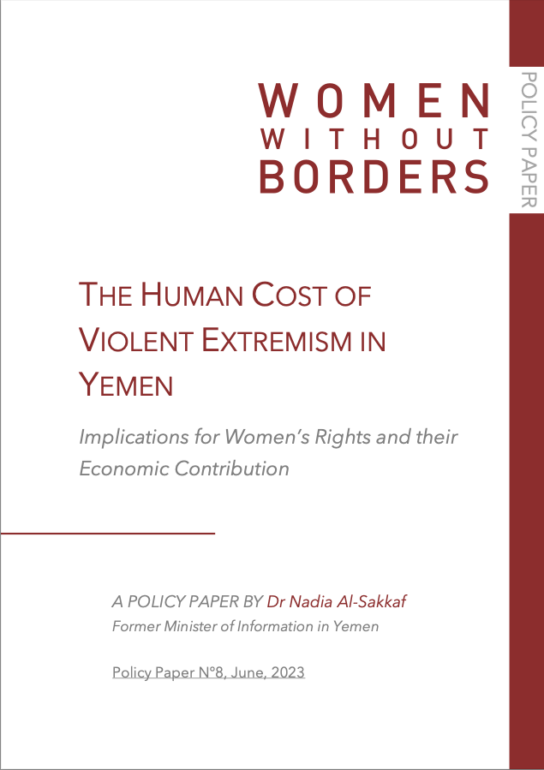In November 2010, Women without Borders (WwB) and Vinita Kamte, the widow of a police officer who died in the 2008 Mumbai terrorist attacks, launched the income-generating project ‘From Soft Power to Smart Power’. Embedded in WwB’s Sisters Against Violent Extremism (SAVE) network and ‘Mothers for Change!’ initiative, the project brought together some two hundred mothers, wives, and daughters of police officers who had been on duty during the 26/11 attacks. Over the course of the project, participants received around 1500 hours of computer literacy, English language, and accountancy training.
“In the months and years following the 26/11 terrorist attacks on Mumbai, Women without Borders (WwB) observed an unsettling trend: sensationalist, perpetrator-centric media coverage had dampened more moderate voices. Adding to this, projections of military might during the 26/11 anniversary did little to foster a culture of dialogue, healing, and reconciliation. WwB identified a particular group uniquely positioned in their homes and communities to support the process of addressing trauma and to speak out against the roots and effects of violent extremism: mothers, wives, sisters, and daughters of police officers who had given or risked their lives to defend the city. Yet this group lacked the necessary platform, confidence, and support to spread awareness, despite expressing an overwhelming willingness to act as voices of reason. To the team at WwB, these women represented potential agents of positive change who would contribute to and benefit from its growing Sisters Against Violent Extremism (SAVE) network.
Recognising that a degree of financial independence presents a crucial step towards positioning women as peacemakers in patriarchal families and communities, WwB initiated its SAVE network programme ‘From Soft Power to Smart Power’. This income-generating project brought together some two hundred mothers, wives, and daughters of police officers who had been on duty during the three-day siege on Mumbai in 2008. Over the course of the project, participants received around 1500 hours of computer literacy, English language, and accountancy training. In strengthening their skillsets and collaborating with a reputable employment agency, WwB sought to increase the participants’ chances of securing employment.
The project built on previous efforts with this group of women. In April 2010, the participants had convened in WwB’s ‘Mothers for Change! Our Stories Our Future’ workshop. This week-long storytelling workshop supported their complex journey of coming to terms with the atrocities by moving from victimhood towards agency. Anne Carr, a professional community relations and dialogue practitioner, had flown to India from Northern Ireland to lead and facilitate the workshop. WwB had also implemented a swimming workshop in parallel; ‘Swimming into the Future’ complemented the storytelling project to further strengthen self-confidence and group cohesion.
‘From Soft Power to Smart Power’ saw the initial cohort of mothers, wives, and daughters expand by 130 individuals and move beyond the initial phase of trauma healing to embark of a journey of empowerment through building up a relevant skill-set. With India’s expanding and internationally-oriented IT sector in mind, participants were offered accountancy, English language, and computer courses. The women were given grammar lessons and reading exercises. They were asked to learn two new words every day and give presentations. Those who had greater language difficulties attended extra classes. The computer training sought to make the participants proficient in Microsoft Office (Word, Excel, and PowerPoint), increase their typing speed, and enable them to draft letters and prepare CVs. Beyond learning basic accounting, participants also received to complimentary IT and English language books.
The project offered close to 1500 hours of income-generation training at a 10:1 student-to-teacher ratio. Upon completion of their courses, the students undertook final exams in all three subjects. The exam results pointed to noticeable improvements in all areas covered by the project. While a total of 74 participants took the final exam, 50 per cent of expressed interest in job placements.”

